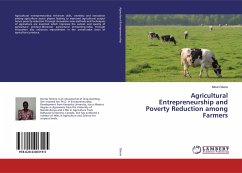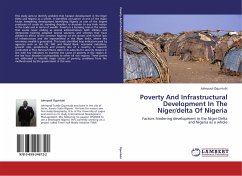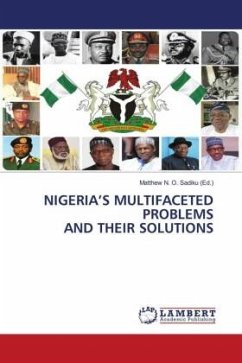
Infrastructural Management of Feeder Roads and their Economic Impact
Versandkostenfrei!
Versandfertig in 6-10 Tagen
41,99 €
inkl. MwSt.

PAYBACK Punkte
21 °P sammeln!
Economic growth in Ghana has either been very slow, little or retrogressive. The popularity of the feeder road transportation sector in the country as an agent of growth and change is evident from the dominance its investments command in most government portfolios. This study's main aim is to investigate the connection between investment in feeder roads and poverty reduction in the Ghana. The key research issue emanating is the study objective from the complexities of the impact of feeder road investments on poverty reduction. In order to investigate these impacts the "with" and "without" scie...
Economic growth in Ghana has either been very slow, little or retrogressive. The popularity of the feeder road transportation sector in the country as an agent of growth and change is evident from the dominance its investments command in most government portfolios. This study's main aim is to investigate the connection between investment in feeder roads and poverty reduction in the Ghana. The key research issue emanating is the study objective from the complexities of the impact of feeder road investments on poverty reduction. In order to investigate these impacts the "with" and "without" scientific inquiry approach was adopted and used. Certain districts were analyzed in detail as they were chosen and studied. Amidst these studies, certain set of feeder roads were reviewed the following it known inhibitors of poverty and human welfare indicators. The major finding from the analyses of data is that transports investment in the localities impacts on poverty reduction by reducing or stabilizing transport costs to urban markets and health facilities, travel and waiting times as well as increasing household trips. These impacts enhanced agricultural production and.












